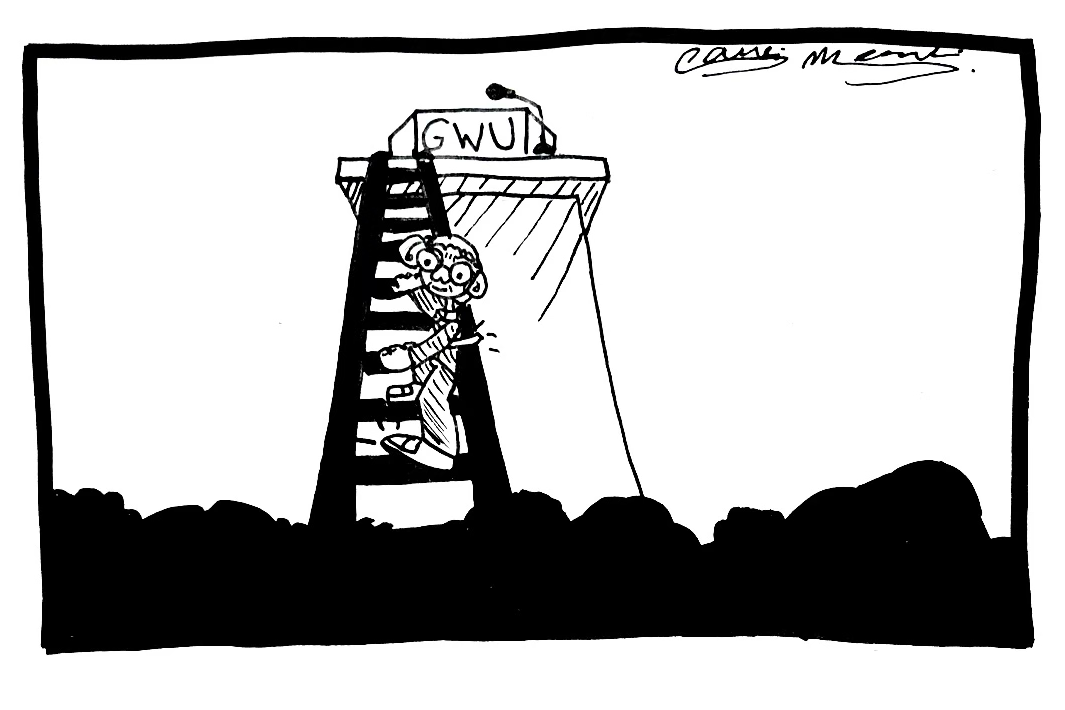Steve Balla is an associate professor of political science, public policy and public administration and international affairs. Chris Carrigan is an associate professor of public policy and public administration and the master of public administration program director.
As tenured members of the Department of Political Science and the Trachtenberg School of Public Policy and Public Administration, respectively, we want to clarify misperceptions and offer support for the GW Regulatory Studies Center. We want to address two specific points that have been raised in recent discussions about the RSC.
First, no one affiliated with the RSC questions the science behind climate change. We certainly do not. But do not take our word on this. And do not take at face value the word of Public Citizen, the Sunrise GW movement or anyone else for that matter. Go ask the scholars of the RSC and read their writings to find out for yourself.
Second, there is absolutely no evidence that the work of anyone affiliated with the RSC is in any way influenced by any of its funders. Here are our personal stories.
Chris Carrigan, an associate professor of public policy and public administration and the master of public administration program director, has edited a book – published by the University of Pennsylvania Press – that examines the hot-button issue of the employment effects of regulation. In the book, Carrigan and a co-editor argue that the evidence does not support the claim that “regulation kills jobs,” a common political refrain in the wake of the Great Recession. Rather, Carrigan and his co-author maintain that “regulation is neither a prime job killer nor a key job creator.” The book has been cited in publications disseminated by the federal government and organizations that advocate for stringent health, safety and environmental regulations. One of these organizations is Public Citizen, which quotes the book in support of its position by calling it a “comprehensive empirical study conducted by numerous distinguished regulatory experts and academics.” After the book’s publication, the RSC spent countless hours organizing a public event to help spark interest in the project. The nature of the book’s conclusions in no way affected the RSC’s desire to publicize Carrigan’s research in both scholarly and policymaking circles.
Steve Balla, an associate professor of political science, public policy and public administration and international affairs, is in the midst of a project on mass comment campaigns in regulatory policymaking, which is a hot topic right now among policymakers. In addition to his scholarly work, Balla has written op-eds, spoken at government events, been interviewed on the radio and testified before the U.S. Congress. There are those on Capitol Hill who would favor limiting mass comment campaigns, which are regularly used by environmental advocacy groups, labor unions and progressive organizations to add their voices to the regulatory process. Balla argues, based on his research, that there is no need for this. In fact, it is a bad idea, both logistically and on principle. The RSC and the Department of Political Science have supported this project by providing undergraduate and doctoral student research assistants, some of whom have become co-authors. This research support has in no way influenced what Balla is studying, how he studies it, what he finds or where he publishes his peer-reviewed findings.
Take a careful look at the research of others affiliated with the RSC and you will find the same independence and integrity. We encourage interested members of the GW community to learn about the work of the RSC firsthand. Spend time on its website. Read its scholarship. You will find that the RSC is composed of scholars who hold diverse viewpoints on all kinds of issues, who conduct research that is varied in substance, methodology and policy implications. You will find a center that former President Barack Obama’s regulatory czar – one of the leading legal minds of our time – has called a “national treasure.” Rather than trying to close the RSC, we should be celebrating its remarkable achievements of bringing together scholars and practitioners who hold diverse viewpoints in the area of regulatory policymaking. We feel very fortunate that this “national treasure” is right here at GW, and we hope that it will be for many years to come.



